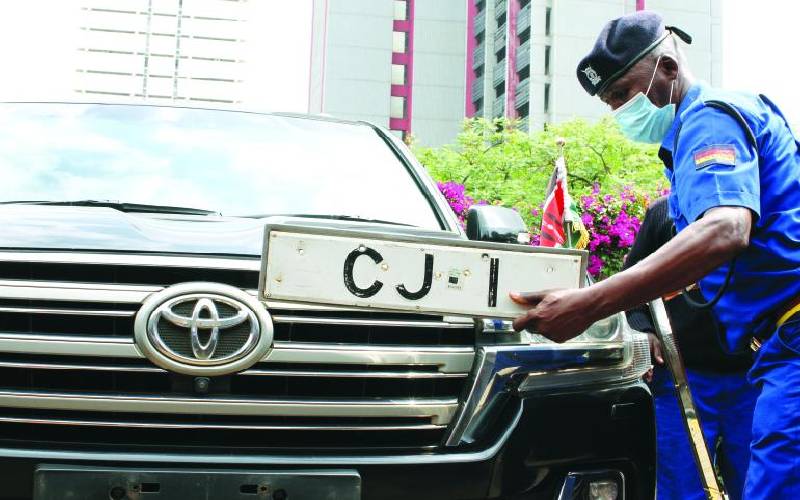×
The Standard e-Paper
Smart Minds Choose Us

A police officer removes a number plate from the Chief Justice’s official car at the Supreme Court yesterday. [Collins Kweyu, Standard]
Dynamics in the hunt for the country’s next Chief Justice will make the process one of the most interesting recruitment drives in recent times.